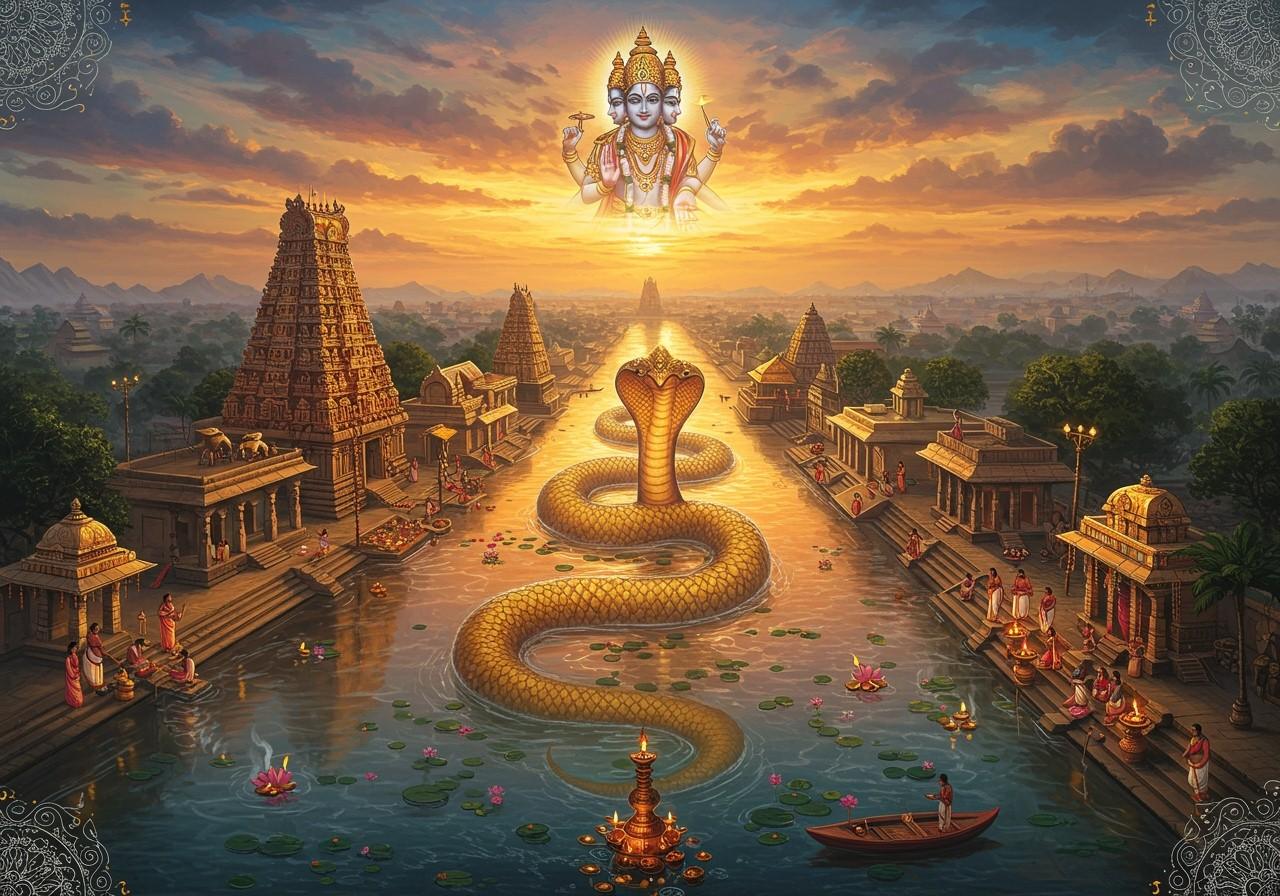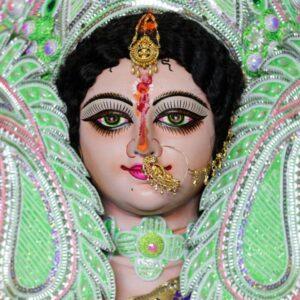
The Kaveri River holds a cherished place in the hearts of many in southern India. It serves not only as a vital water source but also as a powerful symbol of spirituality and tradition, particularly for the people of Coorg, where it’s revered as a divine entity deeply intertwined with their daily lives. This article delves into the rich history, mythology, and cultural significance of the Kaveri River, exploring its profound connection with the region and its people.
Historical Significance of the Kaveri River
The Kaveri River has played a pivotal role in the historical narrative of South India. Its life-giving waters nurtured the flourishing empires of the Chola and Chalukya dynasties, who established their kingdoms along its fertile banks. The river’s consistent flow sustained ancient farming communities, fostered trade, and contributed to the overall growth of culture and civilization. The fertile plains nourished by the Kaveri became vibrant centers of activity in medieval India, and historical texts, such as the Sangam literature, extol the river’s beauty and abundance. The river also played a central role in traditional water management, with impressive dams constructed by ancient kings to effectively manage its precious waters.
Mythological Stories and Beliefs
In Hindu mythology, the Kaveri River transcends its physical form and is revered as a goddess. Its significance is particularly profound in South India, especially in Karnataka and Tamil Nadu. The river is deeply associated with nurturing and motherhood, symbolizing the life-giving and protective qualities of a mother. One prominent mythological narrative centers around Sage Agastya and his kamandalu (water pot). It is believed that from this sacred vessel, the divine waters of the Kaveri first flowed, bestowing blessings of purity and nourishment upon the earth. Another legend recounts the story of Lopamudra, an incarnation of Goddess Parvati, who is linked to the river’s origin, adding a layer of spiritual depth to its significance.
Significance for the People of Coorg
For the people of Coorg, the Kaveri River is more than just a source of water; it is an integral part of their identity. Originating at Talakaveri in the Brahmagiri hills, the river shapes the cultural fabric, agricultural practices, and very essence of Coorg. Its waters nourish the lush coffee plantations and paddy fields, sustaining the livelihoods of countless families. The river’s significance is celebrated through festivals like Kaveri Sankramana, marked by rituals and offerings. In Coorgi wedding ceremonies, the sacred waters of the Kaveri are used for holy rites, symbolizing purity and blessings. The river’s life-giving properties are also extolled in the songs and stories that have been passed down through generations.
Kaveri River and Temples
The Kaveri River enriches the spiritual landscape of South India, with numerous temples gracing its banks, attracting both devout pilgrims and curious travelers. The Srirangam Temple, situated on an island formed by the Kaveri, stands as one of the largest functioning Hindu temples in the world. Another significant temple is the Ranganathaswamy Temple at Srirangapatna, dedicated to Lord Vishnu, which holds special connections with the river. Other notable temples, such as the Brihadeeswarar Temple in Thanjavur and the Nanjangud Temple, also share deep historical and spiritual ties with the Kaveri.
Modern-Day Relevance and Environmental Concerns
Today, the Kaveri River continues to sustain millions of people in Karnataka and Tamil Nadu. However, it faces pressing challenges, including pollution, water disputes, and the increasing impacts of climate change. Local communities, government agencies, and NGOs are actively working to preserve the river’s health and revive traditional water conservation practices. Balancing development with ecological preservation is crucial to ensuring the river’s future and the well-being of the communities that depend on it.
How Poojn.in Helps You Honor the Kaveri River’s Sacred Traditions
Poojn.in offers a curated selection of puja items to help you maintain your connection with the holy Kaveri River and perform related rituals with authenticity:
- Complete Puja Kits: Ready-to-use sets containing all the essential items for Kaveri-related pujas and ceremonies, ensuring a convenient and complete worship experience. These kits are designed to simplify the process of gathering all the necessary components for your rituals.
- Pure Copper Kalash: Traditional vessels crafted from pure copper for holding sacred Kaveri water during rituals and within home temples. The copper kalash is believed to enhance the purity and sanctity of the water.
- Organic Cotton Vastram: Pure, organic cotton clothing items specifically designed for river worship ceremonies, adhering to traditional customs and ensuring purity during rituals. These garments are crafted with respect for the sacredness of the ceremonies.
- Natural Incense & Dhoop: Premium quality incense sticks and dhoop made from natural ingredients, perfect for ritual offerings and creating a sacred atmosphere. The natural fragrances enhance the spiritual experience.
- Mangalam Camphor: Enhance your Kaveri River rituals with the pure aroma of Mangalam Camphor, available in butter paper and tablet forms. Create a sacred ambiance and invoke positive energy during your ceremonies.
Visit www.poojn.in to explore our complete range of authentic puja items. We offer doorstep delivery across India with secure packaging to maintain the purity of your ritual items. Our dedicated customer service team is available to provide guidance on the proper usage of items for various ceremonies. For bulk orders and temple supplies, please contact us directly through our website. All products come with quality assurance and are sourced from verified vendors who uphold traditional manufacturing methods.
Embracing the Legacy of the Kaveri River
The Kaveri River flows through the heart of South India, weaving together the threads of history, mythology, and daily life. It is not merely a body of water, but a revered goddess, a nurturing mother, and a wellspring of spiritual inspiration. From the ancient stories of Sage Agastya and Lopamudra to its vital role in Coorg’s culture and agriculture, the Kaveri River embodies life, prosperity, and the enduring connection between nature and humanity. As devotees visit its temples and communities celebrate its festivals, the river unites people in a shared heritage. However, the challenges it faces serve as a poignant reminder of our collective responsibility to protect this sacred river. By embracing traditional wisdom and modern solutions, we can help preserve its legacy for generations to come, ensuring that its waters continue to bless the land and its people with purity and abundance.
Frequently Asked Questions about the Kaveri River
What makes the Kaveri River so important to the people of Coorg? The Kaveri River is essential to Coorg, providing water for agriculture, daily needs, and holding a central place in local traditions and rituals. It symbolizes purity and life itself for the people of this region.
What’s the mythological story behind the Kaveri River? Mythology describes Kaveri as a celestial nymph who transformed into a river to benefit humanity. She is revered as a goddess who bestows fertility and prosperity upon the land.
Which temples are located near the Kaveri River? Several important temples are situated along the Kaveri, including the renowned Ranganathaswamy Temple in Srirangapatna and the Nimishambha Temple, both significant pilgrimage destinations.
What is the Kaveri River’s role in Hindu rituals? The sacred waters of the Kaveri are used in various Hindu rituals, including bathing, prayers, and ceremonies honoring ancestors. The water is believed to purify and bless.
How does the Kaveri River influence local festivals? The Kaveri is central to many festivals, such as the Kaveri Sankramana, which involves prayers and rituals along the riverbanks, highlighting its cultural and religious importance.
What are some key historical facts about the Kaveri River? The Kaveri has been a vital waterway for trade and agriculture throughout history, supporting ancient civilizations and kingdoms, and contributing significantly to the region’s development.
How does the Kaveri River impact agriculture in the region? The Kaveri is a lifeline for farmers, providing essential irrigation water for crops like rice, sugarcane, and coffee, which are vital to the local economy.

